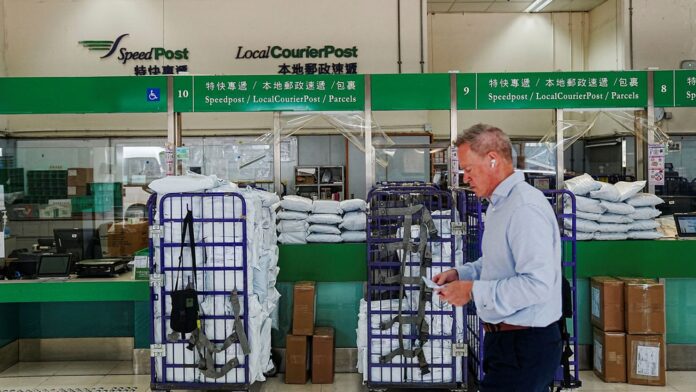Hong Kong Post has been caught in the firing line of international politics. It officially suspended the sea mail delivery of goods to the United States on Wednesday. It also unveiled intentions to cancel air mail dispatch of goods starting 27 April 2025, because tensions are escalating about Trump’s trade tariffs.
Hong Kong says the move is in response to what it labeled “bullying” behavior on the part of the United States. The post office made sure to point out that it will not be acting as a collector for tariffs applied by the US. It also warned citizens and businesses that all shipments to the US may now be subject to unjustified and extortionate tariffs.
Only Goods Affected, Not Documents
Notably, the postal service shutdown is only on items containing goods. Letters and documents will continue to arrive in regular manners. However, the shutdown is a major setback, especially for e-commerce sites and small businesses that are shipping abroad to the US market.
The action is in the wake of growing dissatisfaction with Washington’s move to abolish the “de minimis” waiver for postal goods. From 2 May 2025, any item with merchandise delivered from Hong Kong to the US will be taxed more.
Also read: April 15, 2025: Deadline For Unclaimed Stimulus Check 2025
Hong Kong’s Free Trade Image Under Pressure
Hong Kong has traditionally been known as a free-trade hub, envied for its smooth, open postal and logistics network. But this suspension is a sign of how global politics is beginning to affect even ordinary services like mail delivery.
The history of the conflict traces back to 2020 when the US responded to China’s passage of a national security law in Hong Kong. The US responded by ending Hong Kong’s special status and started treating Hong Kong the same as mainland China regarding trade matters. This has placed Hong Kong Post on the same stage and tariff regimes as Chinese exporters.
China-US Trade Tensions Escalate
The wider context is China-US trade conflict, compounded by former President Donald Trump’s tariffs during his rule. Those tariffs, initially applied to Beijing, now extend to Hong Kong too. Spillover effects have extended to postal services, airlines, and the technology industry, subjecting cross-border operations to pressure.
China has even asked its airlines to suspend delivery of Boeing aircraft, further escalating confrontation between the two global powers.
Also read: Average Social Security Benefit For Retired Workers By Age In 2025: Find Out The Ideal Age Of Claiming Social Security
Public Response and Future Prospects
There has been a mixed response from the public in Hong Kong. Exporting businesses are already impacted. For them, canceling the post is more costly alternatives like private couriers or shipping by way of third countries.
Citizens are also expressing frustration. For many, the postal service is not convenient but a requirement—especially for gifts and items sent overseas.
With jitters on the nerves and tariffs going up, no end in view. Meanwhile, Hong Kong Post stands firm: it will not serve the interest of a foreign government to impose fees it deems discriminatory.
Conclusion
In an increasingly polarized world, not even a nation’s postal services are safe from political shifts. The suspension of US-bound exports by Hong Kong Post is less a matter of logistics than the reflection of wider deterioration in China-US relations and the uncertainty it brings to global trade.
As events continue, individuals and business alike must prepare for more interruption in cross-border communication and supply chain.








